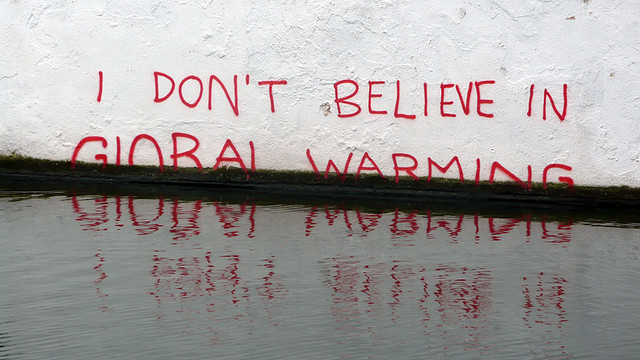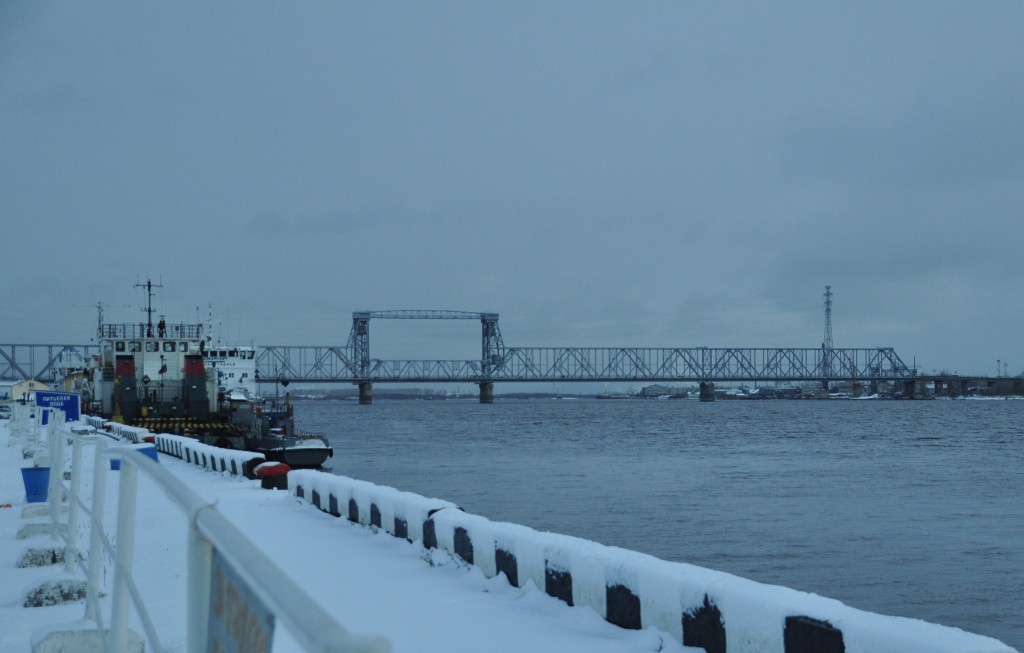Search Results for Tag: global ideas
Get angry @COP18, Qatar
The fourth day of the climate conference in Doha was the official YouthDay, the only day people under the age of 18 could officially participate at the conference. On one panel two grand dames of the climate and human rights negotiations confronted the young people with one particular question: Are you angry enough?
Christiana Figueres and Mary Robinson demanded in direct talks with students from all over the world that they should raise their voices and make themselves heard. The have to show that they care about climate change because of a simple and clear reason: It’s the world they have to live in tomorrow.
Christiana Figueres, Executive Secretary of the United Nations Framework Convention on Climate Change (UNFCCC) from DW_Global Ideas on Vimeo.
and
Mary Robinson, former President of Ireland and United Nations High Commissioner for Human Rights from DW_Global Ideas on Vimeo.
Did the youth raise their voices? Come back here tomorrow, to read more.
What a +4° Celsius world would look like
 The next climate conference is to start in Doha, Quatar this Monday – but already before it is started, participating parties are not really optimistic about a practical outcome.
The next climate conference is to start in Doha, Quatar this Monday – but already before it is started, participating parties are not really optimistic about a practical outcome.
This is especially striking when set into relation with the urgence of the world’s situation: First opinions come up claiming [german languange link] that it is not realistic anymore to limit global warming to plus two degree Celsius when compared to predindustrial level.
In this context, the World Bank released a new report last week. Written by the Potsdam Institute of climate change, they again outline what is to happen with the worlds (eco)systems in a +2 degree-world – and forecast what is to happen in a +4-degree world.
Put in simple matters: Consequences of additional four degrees won’t just be an extension of what is felt at two degrees. Naively one could guess that as temperature doubles from two to four degrees, effects “double” as well. But that is not the case. They amplify even more intense.
To give you an impression of what to expect in a +4 degree world, we have summarized the most important facts.
![]() read more
read more
Floating into the future
You know houseboats, you know cars that are build to swim or tanks. But can you image to live on water in a real hous? That is reality for example in Nigeria, where the people of Makoko build their houses on stilts above the lagoon. What is tradition there, might be a model idea which other parts in the world can adopt to.
Rising sea levels due to climate change will force many people to leave their homes and migrate to places that won’t be covered with water in future time.
Facing this Scenario, the Maledive Islands government had an unusual idea: floating islands. They cooperate with a Dutch arcitechtural company to build artificial islands that stay above, no matter how much the sea level rises.
Do you think this is a proper idea to realize on large scale?
Vaccination for everyone, the polar way
 “Have they cleared the landing strip?”, I asked my seat neighbour when our plane was about to land in the North Russian city of Archangelsk last wednesday. My seat was not on the window, all I could see was right in front of the small window: a lot of snowflakes twirling in the air. It is winter already. When we took off in Berlin in the morning, the autumn sun rose. “Yes, they did”, the colleague next to me answers. “There is less snow underneath our plane then aside us.” The plane slows down.
“Have they cleared the landing strip?”, I asked my seat neighbour when our plane was about to land in the North Russian city of Archangelsk last wednesday. My seat was not on the window, all I could see was right in front of the small window: a lot of snowflakes twirling in the air. It is winter already. When we took off in Berlin in the morning, the autumn sun rose. “Yes, they did”, the colleague next to me answers. “There is less snow underneath our plane then aside us.” The plane slows down.
The next morning, all the snow is thawed. A local man says: “It is quite mild for this time. Normally it is snowing already in middle of October.” Is it just freak weather or already climate change? I prefer not to ask that question.
It emerges that people in Archangelsk do not really believe in climate change: It’s not so bad, they say, all natural. That’s the undertone at a discussion panel on the German-Russian Media forum that is running at the moment in Archangelsk.
I am almost relieved, as a researcher from Northern Public Medical University says: “The existence of climate change is beyond all question”. But a second later I wince as she continues: “We are not interested in what is causing climate change. If humans are responsible … who knows.” It would be more important to think of the consequences and to protect the health of the people. The health professional Zhanna Varakina has contributed to a research project of the World Health Organisation (WHO). The project title is truly condensed, in terms of a scientific paper: “Impact of climate change on human health and assesment of possibilites for adaption in the North of Russia.”
Varakina finally found out: Today there are sixty times more cases of tick-borne encephalitis as there were 15 years ago. What this means in absolute numbers, she can’t tell instantly. Tick-borne encephalitis, short TBE, is caused by virus-infection. These viruses get into the human body when one is bitten by a virus-infected tick. “20 years ago those infected tics could not be found here. It was simply too could, so they couldn’t survive here as tics are very sensitive to temperature”, the researcher says. But nowadays it is here, in Archangelsk, northern of 64th latitude, warm enough for them. A look at the online availiable climate-tables reveals for Archangelsk: In winter the montly average temperature ranges from zero to minus 13 degree Celsius – in summer it is 16 degrees on average and maximum temperature is 21,8 degrees. To me, this still seems quite brisky, but if the ticks feel fine with this…
So I ask the researcher: How do you protect the 350.000 inhabitants of Archangelsk – with a TBE vaccination, as is customary in Germany? “That would be too expensive” she answers. The TBE vaccination is said not to be included in the national vaccination schedule, which means everybody would have to pay for it on his own. But actually, the vaccination is not necessary, she adds: “In spring, two weeks before the snow starts thawing, we distribute chemicals against those animals.”
Franziska Badenschier
Urban paradise under threat
Germany’s most famous urban garden is attracting hundreds of visitors each week. The farmers from the “Prinzessinnengarten” fear that the city of Berlin might be selling their plot soon. This would be the end of an exceptional ecological urban project.
In our GLOBAL IDEAS audio-slideshow founder Marco Clausen shows us around the Prinzessinnengarten:
Gardening goes guerilla in Berlin from DW_Global Ideas on Vimeo.
Money versus Vegetables
At the moment it is highly unsure, if the success story of the Prinzessinnengarten is going to be still around in 2014. The garden’s rental contract ends at the end of 2013. A spokesperson of the Berlin city council (“Senatsverwaltung für Finanzen”) told GLOBAL IDEAS that negotiations for a new contract are currently “ongoing”.
But the urban farmers are fearing that the city of Berlin will be selling off their plot to the most bidding party rather than setting up a new contract with them. Since new stores, an office space for freelancers and artists and a hotel chain have settled close to the Prinzessinnengarten, the area around Kreuzberg’s Moritzplatz got more and more popular with property prices rising. According to a spokesperson of the city’s own Property Fund, negotiations with investors looking at buying the formerly vacant plot have already been made.
Whilst the council of Friedrichshain-Kreuzberg, the communal political body, promised to be supportive of the project trying to help conserve it, the final decision lies in the hands of the city of Berlin. At the end of the day it will be mayor Klaus Wowereit and his government who will have to decide about the Prinzessinnengarten’s future.
Let it grow!
To stop the sell-out of the Prinzessinnengarten, Marco and his co-founders started the campaign “Let it grow”. In an open letter to the city of Berlin they are demanding to prolong the rental contract for another five years. If the city does not agree, Marco and his team will have to leave the plot at the end of next year.
You can sign the open letter to the Berlin senate on the homepage of the Prinzessinnengarten.









Feedback